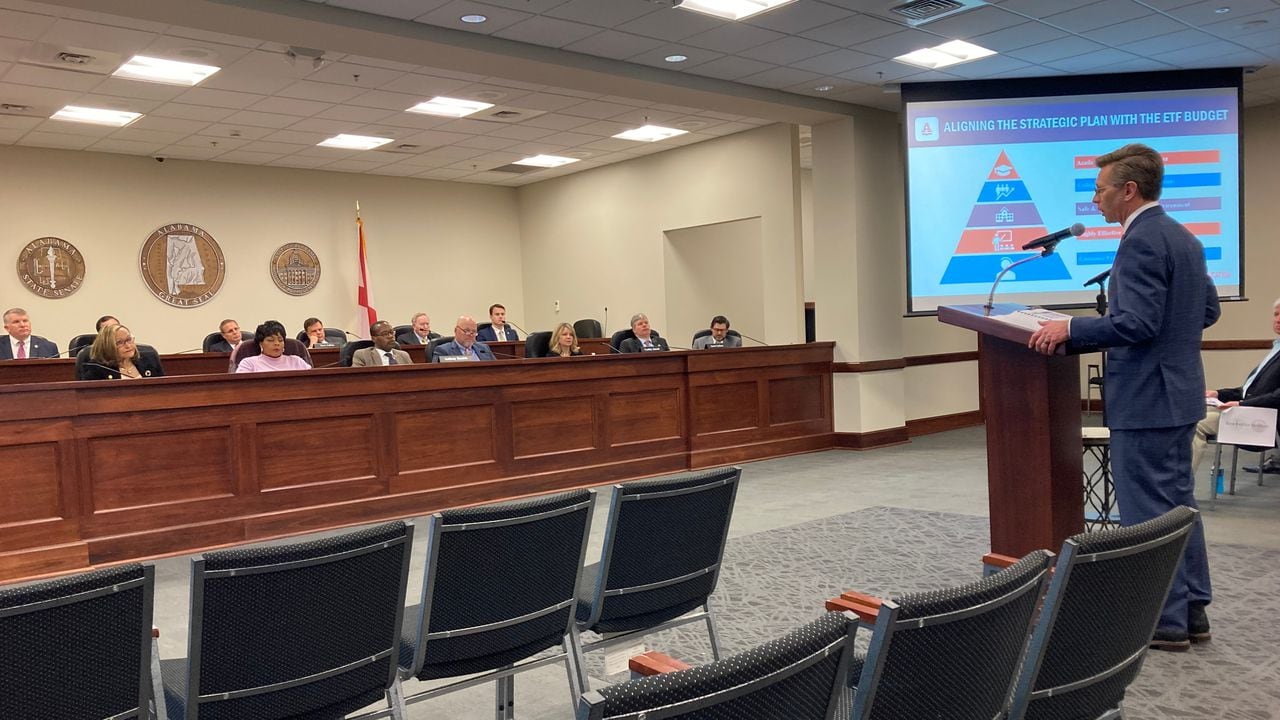Archibald: How Alabama schools discredit evolution, climate change
This is an opinion column.
The very first sentence in Alabama schools Superintendent Eric G. Mackey’s message to teachers about the state’s new proposed science standards begins with an undeniable truth:
“To be truly educated, students need to understand the world around them.”
That’s right.
But – as the rest of the document proves – it’s horse hockey.
Because Alabama’s recommended new course of science study is more about politics than science. More about wishful thinking than preparing students for the thorny world they inherit. More about job security than fact.
Call it survival of the skittish.
Yes, Alabama education leaders – proud to put themselves up as the best possible argument against human evolution – continue to insert a disclaimer into biology textbooks warning that “the theory of evolution by natural selection is a controversial theory.”
But the state of science instruction is more problematic than even that.
Alabama’s existing science standards were already considered among the nation’s worst when it comes to the study of climate change.
When the National Center for Science Education – along with the Texas Freedom Network Education Fund – examined the way schools dealt with the causes and consequences of a changing climate, the groups gave Alabama an “F.”
A panel of reviewers in 2020 said Alabama’s existing standards downplayed the reality, the causes and the immediacy of climate change, and failed to prepare its students for college or the world, NCSE Deputy Director Glenn Branch said.
So Alabama said what Alabama says: “Hold my beer.”
And made things worse.
“Unfortunately, the proposed revisions to Alabama’s standards would weaken the already meager treatment of climate change,” Branch said last week.
“This deterioration in Alabama’s standards is disappointing to see,” Branch said, adding that even Texas, another failing state in 2020, has made marginal strides.
Branch said his colleague Blake Touchet compared Alabama’s old standards to the new one. The one middle school standard that did directly address the human and natural causes of rising temperatures was removed, and there’s no mention of climate change in the standards for middle school or high school, and no standards detailing solutions.
Touchet found that standards in the proposal for high school science do discuss effects of “climate variability” and “environmental change” on specific human populations, “but there is no cause given for why this change or variability is happening and no effort at solving or mitigating the problem.”
Alabama’s science instruction is already abysmal. Even after slight improvements, only 39 percent of students tested this year were considered proficient in science. That’s way worse than Jimbo Fisher’s winning percentage at Texas A&M. Heck, it’s worse than Joe Biden’s approval rating.
A stated goal of the new standards is to “prepare all students to succeed in our global economy and society.”
But this is like sending our children into a whodunnit without a clue.
Alabama schools spokesman Michael Sibley said the standards for each course “prescribe minimal content required for all students, meaning that a teacher who has time to cover additional content is free to do so.”
Not just that, he said, but the course of study states that “local school systems may create additional content standards to reflect local philosophies,” and “local education agencies may build a robust learning sequence,” if they are of a mind.
So teachers can do more if they have time and inclination and courage. And local schools can do more to teach real science – if the science aligns with the philosophies of the bosses.
That ain’t science. And that ain’t leadership or education. It’s politics. It’s a damn shame.
Despite Mackey’s platitudes to teachers, Alabama’s standards – and its cowardly or obstinate leaders – encourage students not to look at the world with a questioning eye, not to examine the cause of one of the most critical issues facing the planet they will live in.
Even as a consensus of climate scientists insists climate change is driven by people like us.
Even as the National Climate Assessment warns that the Southeast will face profound impact from storms, drought, sea-level rise and other catastrophes driven by climate change.
“To be truly educated, students need to understand the world around them.”
Yeah right.
John Archibald is a two-time Pulitzer winner at AL.com.
